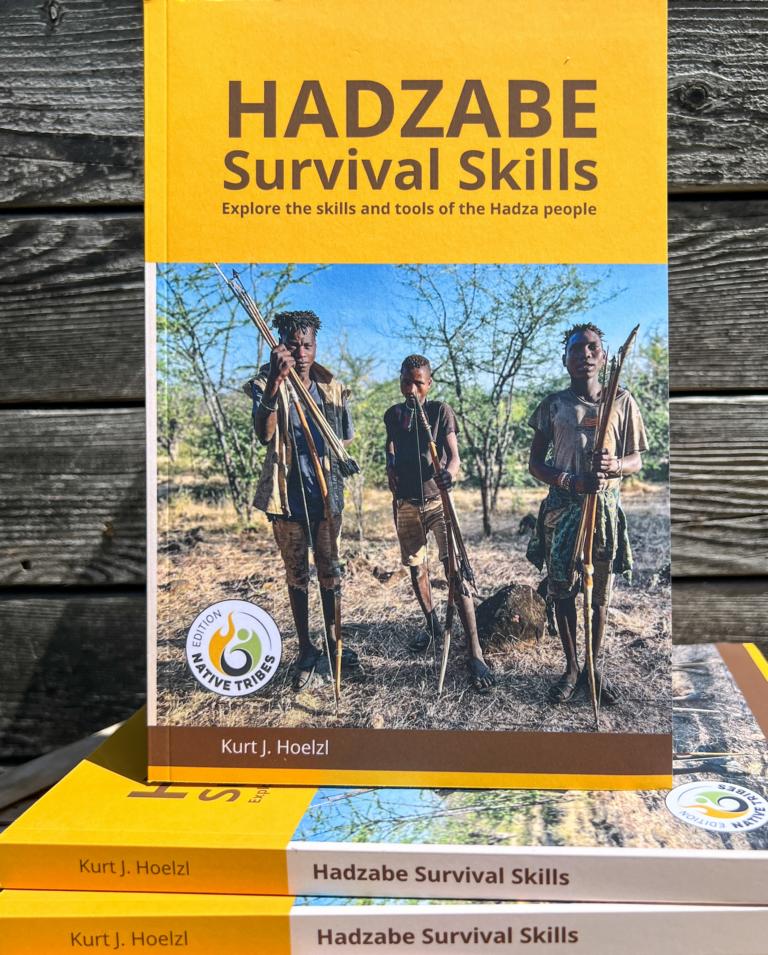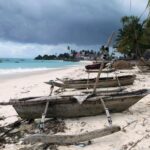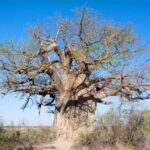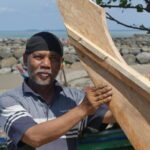Who are the Orang Rimba people?
The expression ‘Orang Rimba’ means ‘People of the rainforest,’ but this name is primarily used by scientists internationally. In Indonesia, the people call them ‘Kubus,’ which means being outside or on the fringe of civilized life. For Orang Rimbas, the term Kubu is highly derogatory and will not be used further in this article. These people stand on the lowest rung of the social ladder in Sumatra.
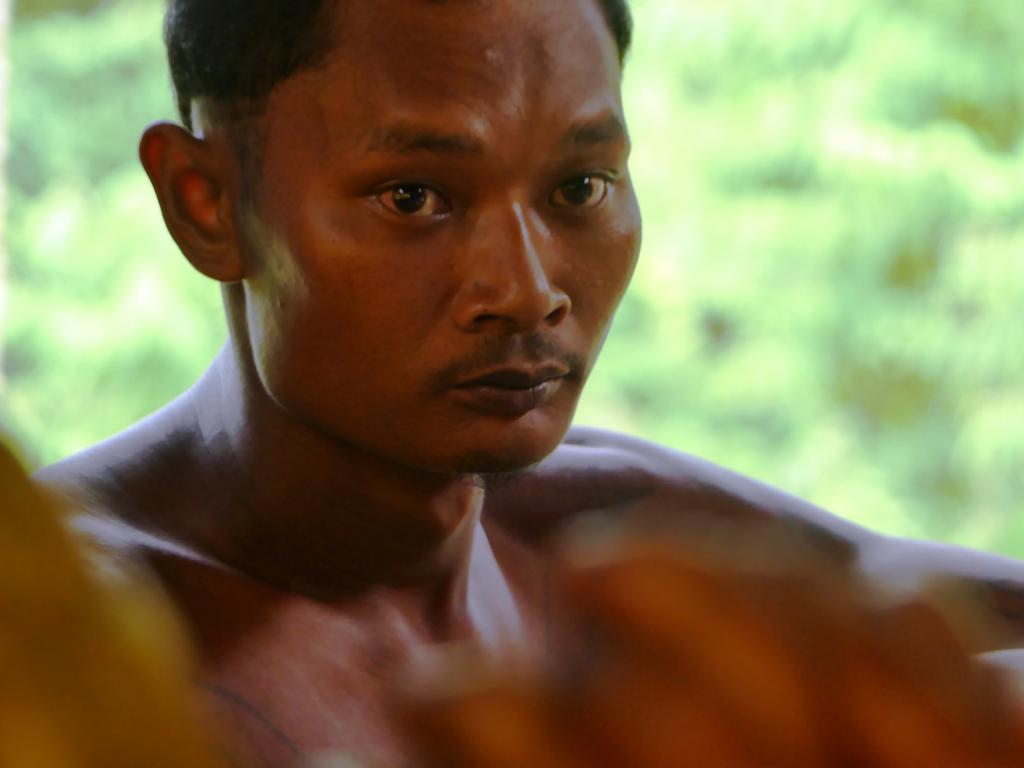
About 1,000 Orang Rimba people live in the forests of Jambi province in Sumatra, Indonesia. They avoid contact with outsiders as much as possible. Most of them are not registered and do not have any identification papers. Therefore, they cannot access education, health services, or state social benefits. This does not matter anyway, as they live in such remote areas that they cannot use these benefits. Besides forest-dwelling Orang Rimba people, many are moving to villages and into mainstream Indonesian society.
In the forests, Orang Rimba people still live their lifestyle as it was generations ago. The only difference is regular contact with a boatman, who will bring their Jernang (Dragon Blood) fruits and gold dust to the market and, in return, deliver them plastic sheets, cigarettes, corrugated iron sheets, batteries for headlamps, and such items. No money is involved, only an exchange of goods.
Driving up the river
I hired a guide who knew a Minakabau boatsman who visited a band of Orang Rimba every fortnight. This boatman was the only outsider the Orang Rimba band trusted. With him and his boat, the four of us (guide, boatsman, his assistant, and me) drove five hours long upriver. I do not want to disclose the name of the river and the exact location of the Orang Rimba band – they should continue living in the future without disturbances by tourists.
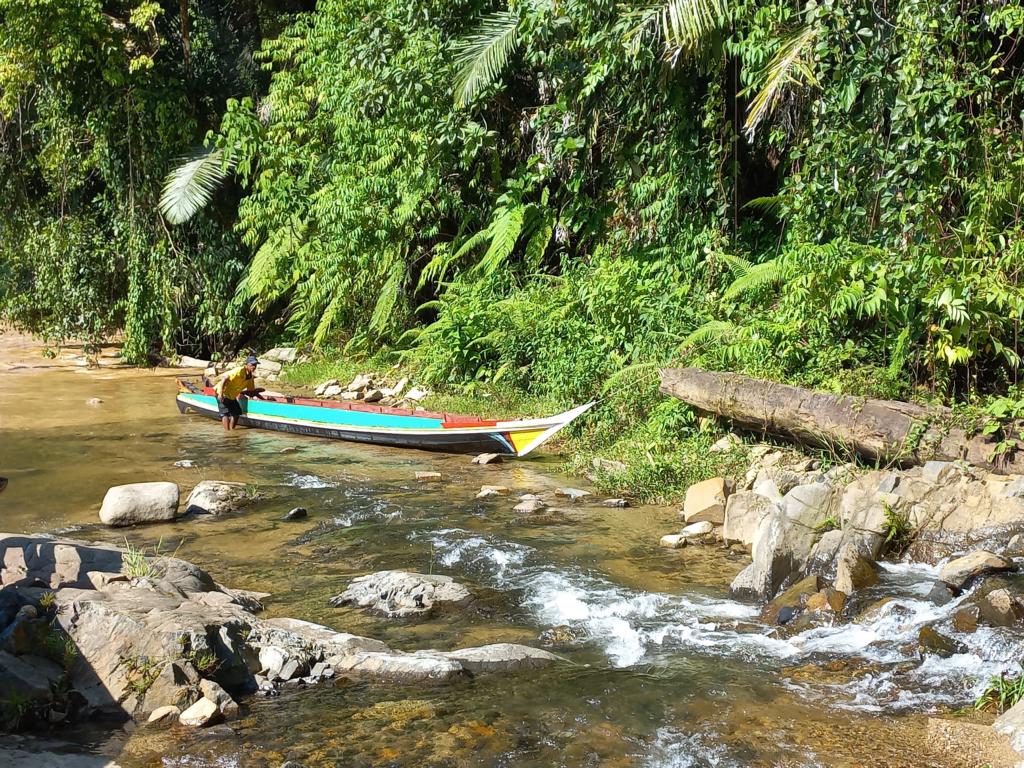
Hiking from the river to their dwellings
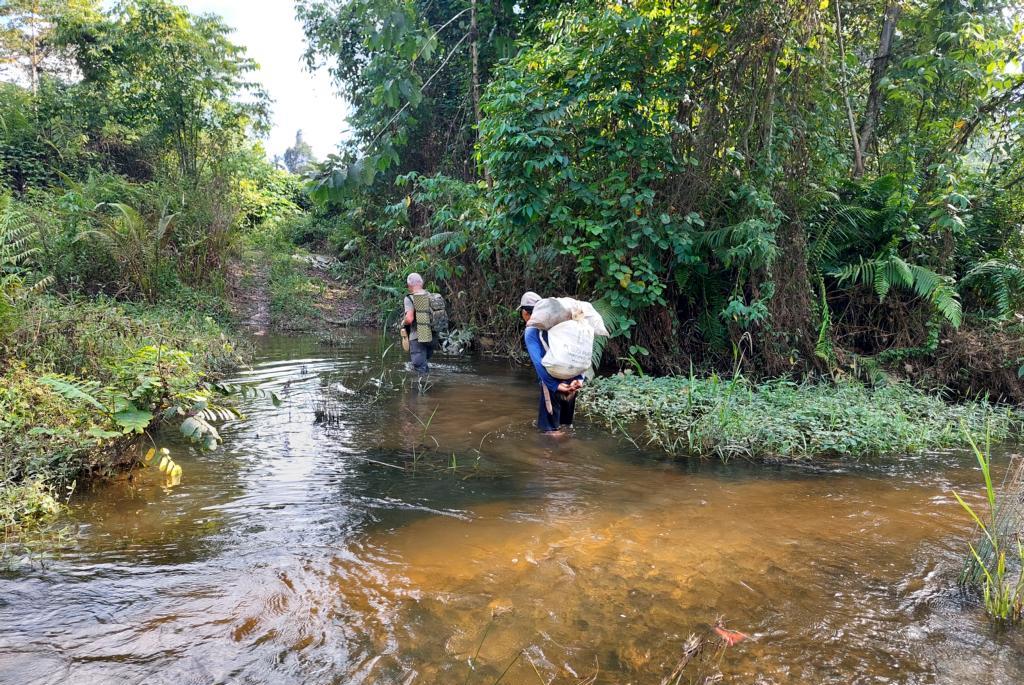
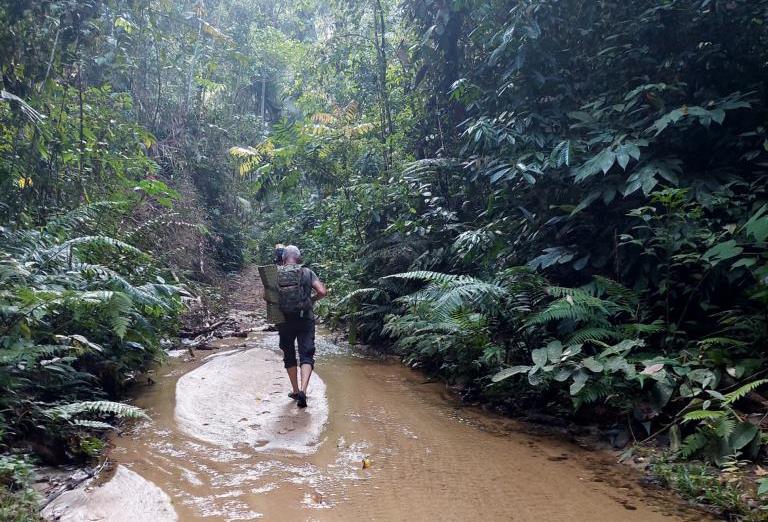
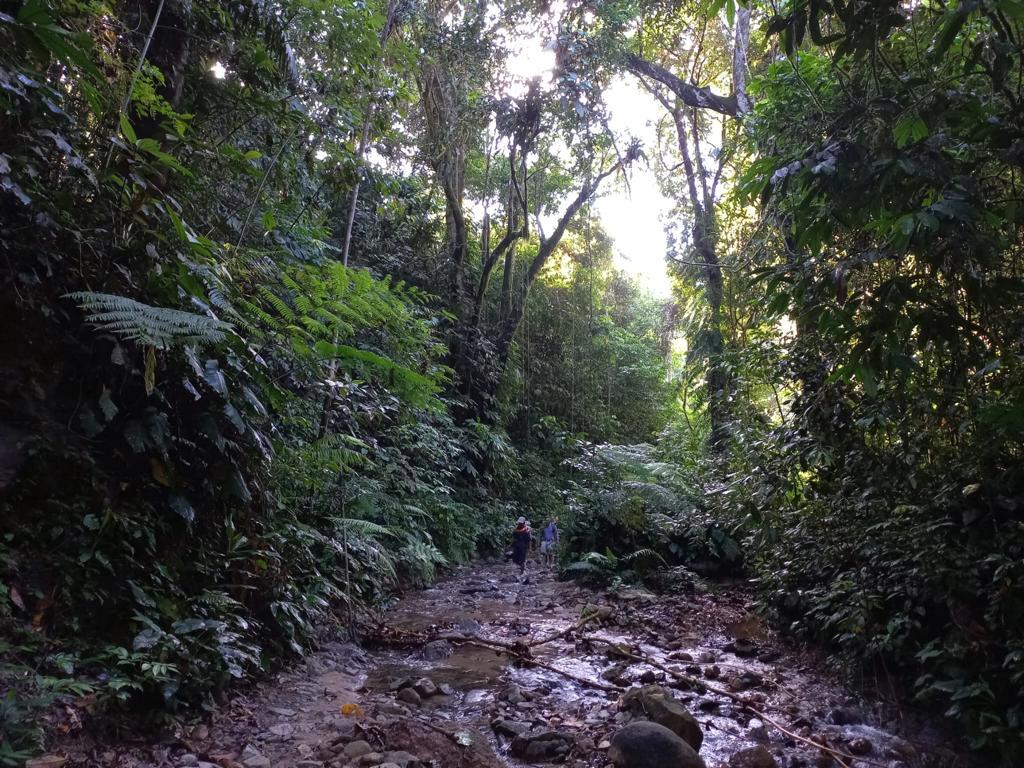
When it was impossible to continue with the boat, we walked for two hours along a brook and, after that, over a hill on the steepest path I had ever walked without calling it climbing. Finally, we reached a partly cleared valley in the forest, about 2 km / 1.2 mi long and 1 km / 0.6 mi wide. Over this area, the clan’s six huts were distributed, and each hut was far away from the others.
We stopped at the first hut we saw, which was deserted and made just of poles, corrugated iron sheets, and plastic tarps. Our boatman walked to the Chief’s hut to announce our arrival. An hour later, he returned with the ‘King,’ as the three Minakabau called him. After handing over two sticks of cigarettes as a gift, he agreed that we could stay in his area and sleep in the shelter we were waiting for him.
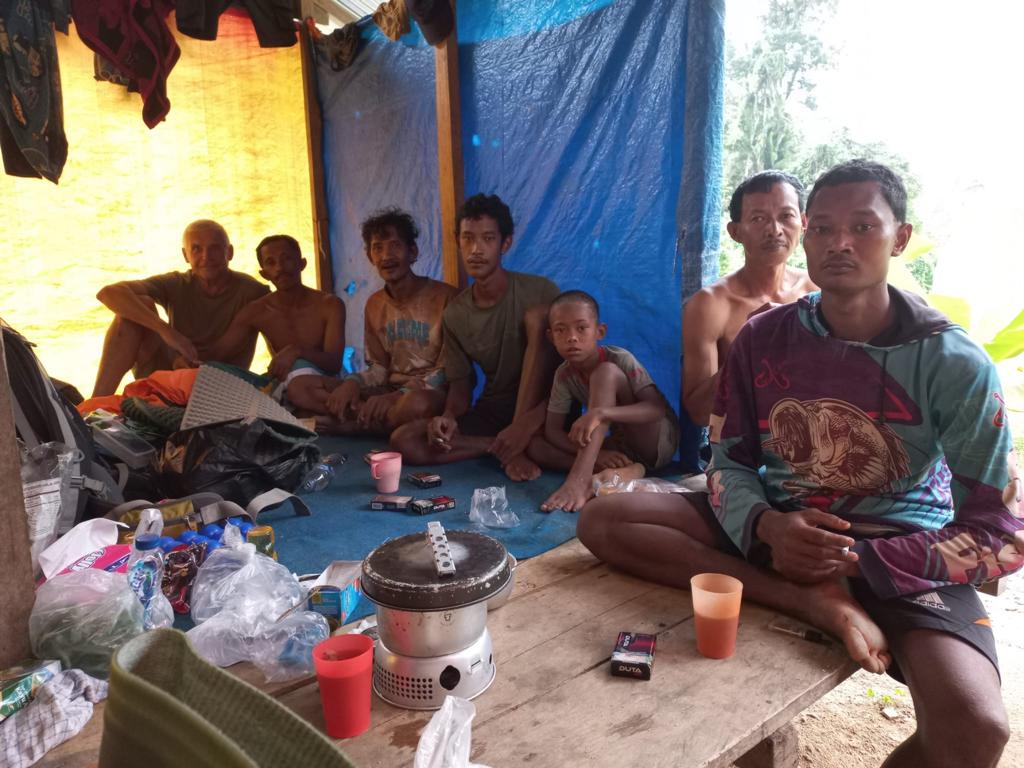
This dwelling was usually used by a mother, three of her daughters, and seven children. But, as they heard at the last visit of our boatman that I, a foreigner, would be coming, they had already left a week ago into the forest and only returned after our departure. Women commonly avoid any contact with strangers, as until recently, Orang Rimba women often fell victim to slavery.
What did I learn from the Orang Rimba people?
Over the following days, I joined them on their hunting and foraging trips and gained insight into their general behavior. These behaviors revolved around matter-of-fact bushcraft skills and knowledge but never around spirituality. This lack of belief surprised me, as anthropologists often describe their spiritual world. But ‘my’ Orang Rimba focused on getting enough food and collecting Jernang fruits.
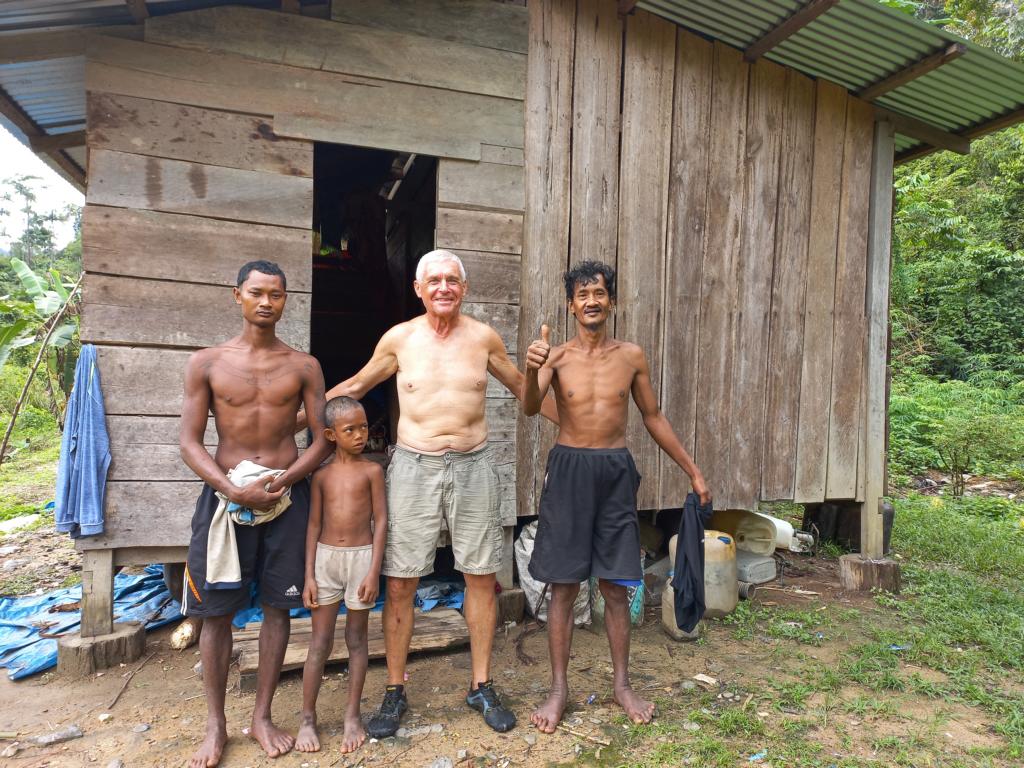
Udin, the king, wanted each family in his band to plant bananas, taro, sweet potatoes, papayas, sugar cane, and cassava around their huts to make them more independent from the daily food collection in the forest. Some even started to plant some seedlings but did not tend them.
Orang Rimba morality
From what I have seen, the Orang Rimba people do everything to maintain their freedom. They will not let bog them down by orders, customs, or time schedules. They move into the forest, and off they go.
Thomy, for example, Udin’s son-in-law, remained in the valley when we arrived because he needed batteries for his headlamp from the boatsman. His wife, however, took their 3-year-old son and went some days ago alone with him into the forest to collect Jernan fruits. If she would have met another Orang Rimba whom she liked, she would have stayed with him. On average, according to Udin, Orang Rimbas are married six times in their lives.
These people’s unique custom is how the first son-in-law has to prove himself. When a young girl has reached the end of puberty, her father cuts a slim tree in the forest, debarks it, and smears the unbarked trunk with fat. This greasy pole will then be laid over a deep ditch. Any contender for the girl will now have to try to cross this ditch on the pole. The first one who succeeds can marry the girl.
Returning to what we call ‘civilization.’
After one of the nights we had heavy rainfall, the brook in front of our hut swelled considerably, and we had to wait for many hours in the morning until it fell to a level where we could cross it.
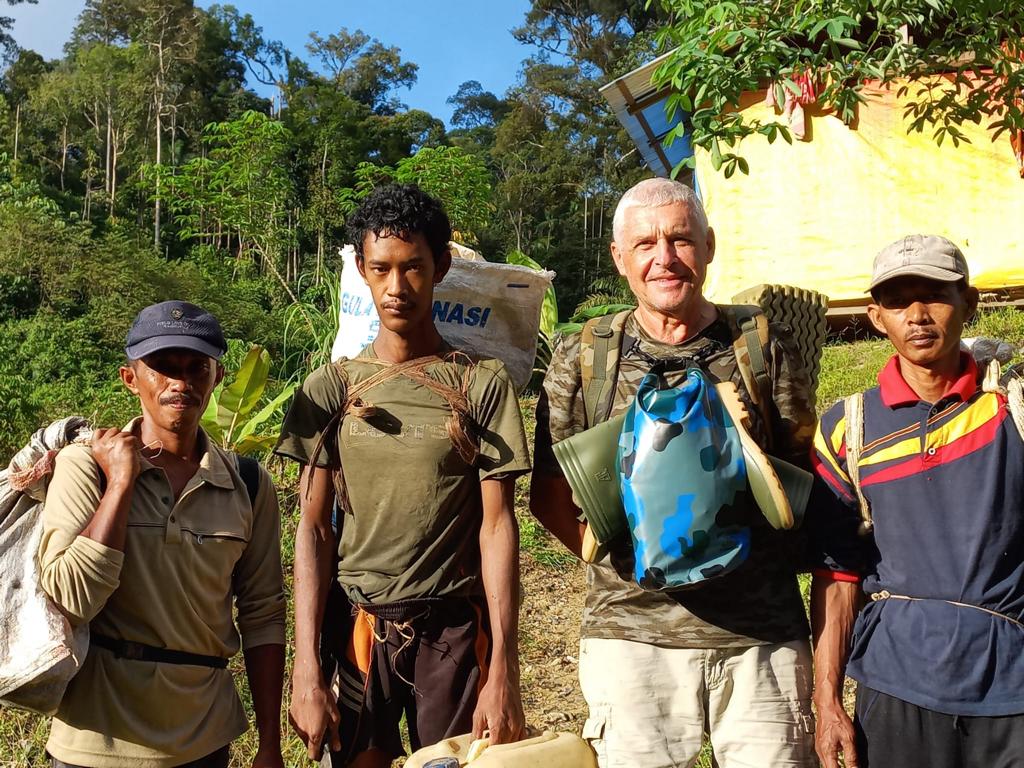
The boat trip back to where we started went without any problems.
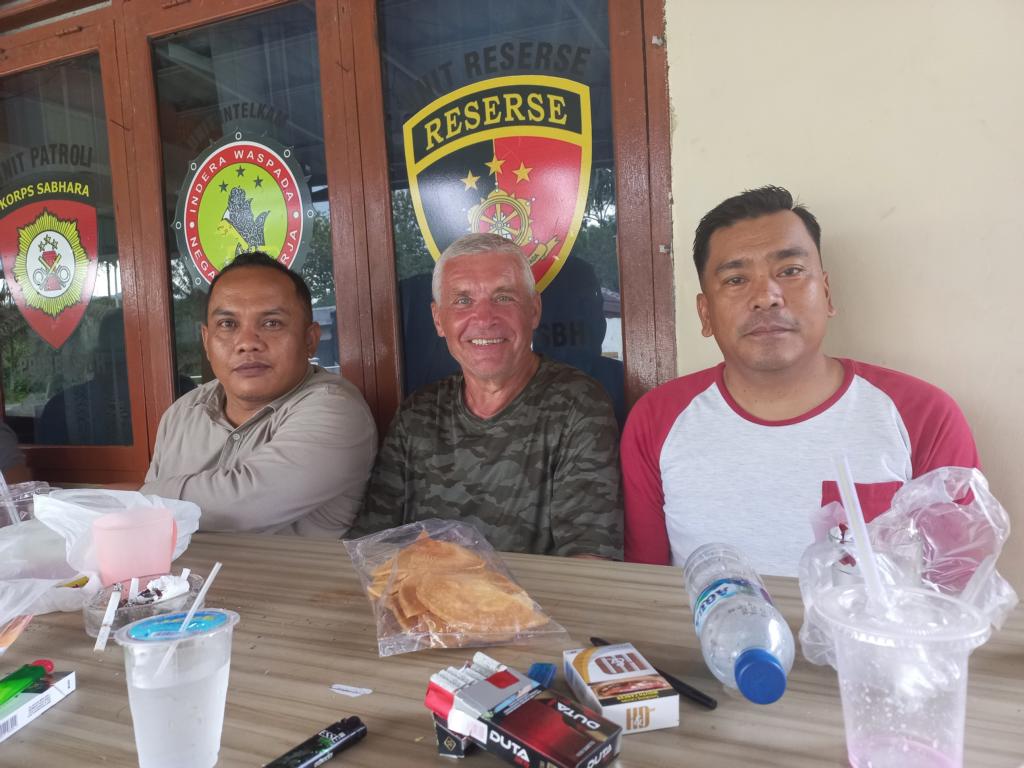
At the village, we reported back to the local police HQ. The commissioner was just interested in my person and whether I had all the required permits issued. He was not interested in the Orang Rimba people or the legal and illegal gold miners we saw on and around the river.
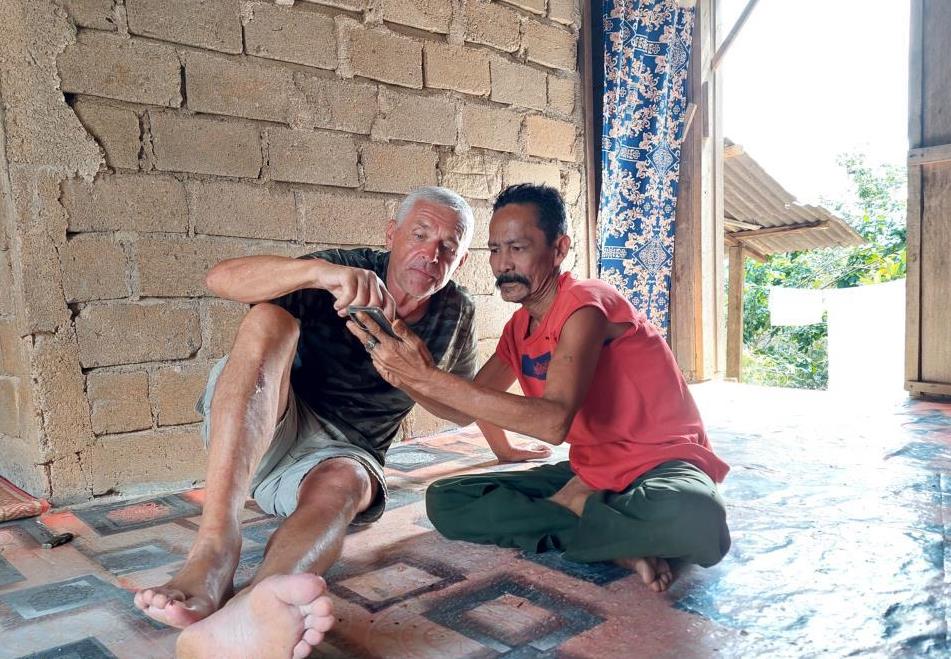
Afterward, we met a former Orang Rimba king in the nearby village. He moved there and now leads a typical village life. He was still very knowledgeable about bushcraft skills and hunting.
Lessons learned from the visit to Orang Rimba people:
- Orang Rimba people are on the lowest rung of the social ladder in Sumatra.
- Most of them are not registered or part of the Indonesian society.
- The band we met lives far from civilization and is only reachable by boat.
- They are timid and do not want contact with strangers. Only the king will interact with outsiders.
- They do not use blowpipes or bows and arrows for hunting; they only use traps and spears.

